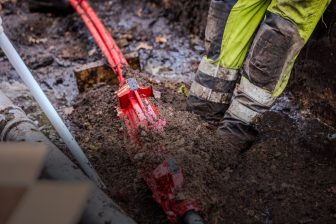T&E: Car industry failing on climate pledge
Brussels, Belgium – Carmakers are defaulting on their pledge to tackle climate change, new figures show. Last year, car industry efforts to improve fuel efficiency achieved a third of the rate needed to meet a commitment they made to the EU in 1998.
Improving fuel efficiency is a key factor in tackling climate change because the more fuel a car uses, the more CO2 is emitted into the atmosphere.
European manufacturers sold cars that produce on average 160 grams of CO2 per kilometre last year, down only 1 per cent on the previous year, according to sales figures analysed by Transport and Environment (T&E).
The European Automobile Manufacturers Association (ACEA) promised the European Commission in 1998 to reach average emissions of 140 grams of CO2 per kilometre for new cars by 2008.
Carmakers now need an unprecedented improvement rate of 4.3 per cent per year for the next three years to meet their commitment. To date, the best performance was 2.9 per cent, recorded in 2000.
“President Barroso’s Commission has sat back and watched while carmakers put all their technology into making cars heavier and more powerful, rather than more fuel efficient” said Jos Dings, Director of T&E.
“President Barroso, himself the owner of a gas-guzzling Volkswagen Touareg, must recognise that a voluntary commitment from an industry that is responsible for 15% of CO2 emissions in the EU is not enough and is failing miserably. Legislation is urgently needed if real progress is to be achieved” said Dings.
Further improvements in efficiency are not expensive and can be made with widely-available existing technology. A report for the European Commission last year showed that the cost of meeting the EU’s own target for new cars of 120 grams of CO2 per kilometre would be on average € 577 per car.
Meeting the EU target would result in twenty-five per cent lower fuel bills. At today’s prices that would mean a € 1000 saving for the average car over three years.
“Rules that make cars more fuel efficient save lots of money and save the climate. It’s time President Barroso parked his gas-guzzler and got Europe’s carmakers on the road to fuel efficiency” said Dings.
The source of the sales and CO2 data for 2005 is R.L. Polk Marketing Systems GmbH in Germany. The data have been analysed for T&E by IEEP, the Institute for European Environmental Policy, UK.
In 1998 the European Automobile Manufacturers Association (ACEA) committed to the European Union to reduce the average CO2 emissions of new cars sold in the (then) 15 EU Member States to 140 g/km, down from 186 g/km in 1995.
U las zojuist één van de gratis premium artikelen
Onbeperkt lezen? Profiteer nu van de introductieaanbieding voor € 10,- per maand.
Bent u al abonnee?



